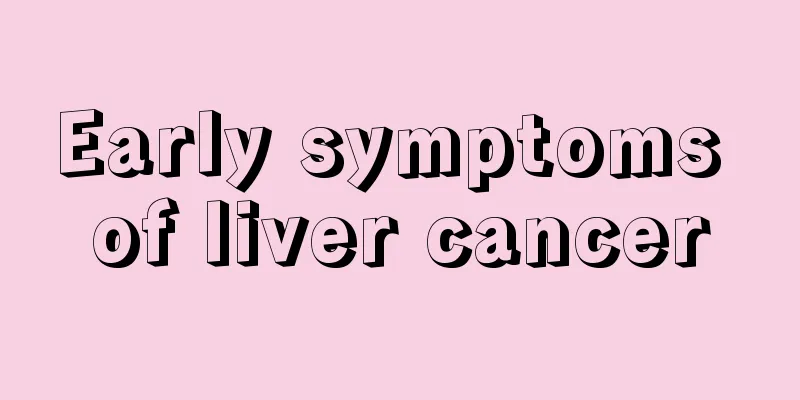Why does skin become more itchy the more you scratch it?

|
The skin is a very sensitive tissue. Although the skin covers a large area, people can locate the lesion very accurately as long as there is a problem with the skin. For example, if the skin is itchy, people can quickly find the location of the itching and deal with it actively. However, some itches become more severe the more they are scratched. Let's take a look at why the skin becomes more itchy the more you scratch it? Skin itching is caused by many reasons, such as excessive bile acid concentration, endocrine disorders, central nervous system diseases, etc. Many patients with allergic skin diseases such as eczema, neurodermatitis, and pruritus often experience severe itching on their skin. Patients often can't help scratching their skin with their fingernails. The result of this is often that the itching does not subside, but becomes more severe, causing ulcers and suppuration on the affected skin, and increasing the pain. Why can’t you scratch your itchy skin? Why does it get more itchy after scratching? It can be explained from the following three aspects. 1. When scratching the skin, the hard fingernails are like sharp spatulas, peeling off the thin and tender epidermis, exposing the bright red dermis, and the tiny capillaries in the dermis rupture and bleed. At this time, not only the natural barrier function of the skin disappears, but also the serum protein seeping from the dermal capillaries becomes a culture medium for various microorganisms such as bacteria and fungi, often leading to various purulent bacterial infections and causing inflammatory reactions in the skin. Such inflammatory reactions stimulate the tiny nerve fibers in the dermis, and the nerve fibers produce slow-frequency nerve impulses and fast-frequency nerve impulses. The slow-frequency nerve impulses can produce itching, and the fast-frequency nerve impulses can produce pain. These two nerve impulses reach the sensory nerve center of the cerebral cortex through the nerve conduction pathway, forming itching and pain. Therefore, after scratching the skin hard, the affected skin will feel painful and itchy. 2. Self-tissue proteins such as shed epidermal cells, capillary wall cells, and serum combine with bacteria to form antigenic substances. After this autoantigen is absorbed into the blood through the capillaries in the dermis, it stimulates the body to produce an allergic reaction, leading to a red rash and increased itching. This phenomenon is medically called "autosensitivity reaction." Autosensitivity reactions can also cause inflammatory reactions in the skin. Inflammatory reactions stimulate the tiny nerve fibers in the dermis and produce slow-frequency nerve impulses. The slow-frequency nerve impulses cause itching in the sensory nerves of the cerebral cortex. Therefore, scratching the skin hard will actually make the itching worse. 3. Scratching the skin directly damages the tiny nerve fibers in the dermis, causing an inflammatory reaction, which causes the nerve fibers to produce slow-frequency nerve impulses, resulting in an itchy sensation in the sensory nerve center of the cerebral cortex. Therefore, when your skin is itchy, do not scratch it hard. |
<<: What happens to the skin after using hormones?
>>: What will happen if sebaceous nevus is not removed?
Recommend
The function of agarwood bracelet
As the name suggests, agarwood bracelet is a brac...
What should I do if the baby doesn't move during fetal heart monitoring
After a woman becomes pregnant, she needs to have...
What are the hazards of bile duct cancer
Due to various reasons, in modern society, cancer...
What kind of bacteria will be present if you raise birds
Many people like to raise birds when they have a ...
What are the Chinese herbal facial masks for removing yellowness and whitening?
Women love beauty and they all like to have perfe...
What are the effects of blue moonstone
To talk about the effects of moonstone for men, i...
Can I do gastroscopy during breastfeeding?
In daily life, many people do not pay attention t...
The best way to deal with a sprained ankle
In life, we often encounter the situation of &quo...
What are the complications of advanced esophageal cancer?
The complications of esophageal cancer are quite ...
How long can you live with malignant pancreatic cancer
How long can patients with malignant pancreatic c...
What is the cause of blurred vision in nasopharyngeal cancer
Why does nasopharyngeal cancer cause blurred visi...
What does spoiled red wine smell like
Red wine is a common type of alcohol. Many people...
How to treat cold erythema multiforme?
Erythema multiforme cold is a skin disease that c...
Can vitamins reduce inflammation?
Vitamins are an indispensable nutrient for the hu...
How to eat to get quick results for bladder cancer
After bladder cancer is diagnosed, treatment is n...









